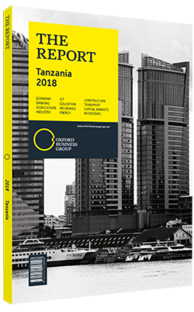Moremi Marwa, CEO, Dar es Salaam Stock Exchange (DSE): Viewpoint

Viewpoint: Moremi Marwa, CEO, Dar es Salaam Stock Exchange (DSE)
In the past five years the DSE has made significant progress in its role of facilitating the financing of Tanzania’s economic development. This can be evidenced by the increase in depth, liquidity, number of investors and number of listed companies. The DSE has transformed into a commercial entity that pays dividends to over 3000 shareholders, including the government of Tanzania, which owns 15 companies on the exchange.
The DSE’s liquidity has grown 10-fold, from an average annual turnover of TSh50bn ($22.7m) to an average annual turnover of TSh500bn ($227.4m). The number of listings has increased by over 50%, from 17 companies to 26 listed companies that have issued equity. The investor base has also doubled during this period to 500,000, although half of that came via the listing of Mwalimu Commercial Bank.
Efforts by the government to encourage transparency, good corporate governance and economic empowerment via the listing of telecoms and mining companies should lead to an increase in the vibrancy, depth and velocity of the market.
The passage of the Electronic and Postal Communications Act of 2010, which was amended via the Finance Act of 2017, will among other things allow foreign investors to participate as investors in telecoms companies, which will result in significant transformation in the DSE. The law requires companies operating in the telecoms sector to offload 25% of their shares to the public, and list on the DSE or a secondary market. The impact of this move will be very positive, as telecoms tends to have a significant impact on markets.
However, on the other side we still have both regulatory and infrastructure challenges — for example, market makers are absent, which serves to limit liquidity, as these institutions offer two sides of transactions, both buying and selling. With respect to attracting increased interest from investors, the market largely lacks the internal capacity to create word-of-mouth publicity, as well as research and analysis from stockbrokers on both the supply and analysis side. In order for foreign and institutional investors to take an interest, they have to be informed and there have to be reasons why they should buy, hold or sell.
This capacity is lacking in Tanzania’s stockbrokers, as they do not have large enough balance sheets to play the role of market making. Comparatively, in other markets, fund managers overseeing collective investment schemes with a lot of retail investors can help enhances access to the market. This is typically because retail investors lack the training to adequately understand the risks involved in the markets. Normally, the competencies and knowledge of a fund manager will be utilised to invest on behalf of the retail investors. With the absence of such actors in this market, we have limitations in this space, and currently have only one fund manager in this area. These factors help to explain on a fundamental level why Tanzania does not have enough liquidity in the market.
The introduction of the Enterprise Growth Market (EGM) in 2013 was intended to benefit small and medium-sized enterprises, new ventures and loss-making entities that were in a position to move from losses to gains if they could secure a sufficient source of capital. Currently, we have five companies listed on the EGM with around TSh120bn ($54.6m) in market capitalisation. From a benchmarking perspective, we believe the EGM has made some good progress, though we cannot compare the EGM to the AltX in South Africa.
Understandably, the EGM is supposed to be a market for small enterprises. What we have seen instead is the segment mobilising a total of TSh3bn ($1.4m), with the minimum mobilised for each company being set at TSh200m ($91,000). Still we expect more companies to enter the market over the coming months and years, especially those from the banking and financial services sector, which need a sizeable amount of capital to enter the market. Four of the existing companies on the EGM are from the banking and financial services sector.
You have reached the limit of premium articles you can view for free.
Choose from the options below to purchase print or digital editions of our Reports. You can also purchase a website subscription giving you unlimited access to all of our Reports online for 12 months.
If you have already purchased this Report or have a website subscription, please login to continue.

